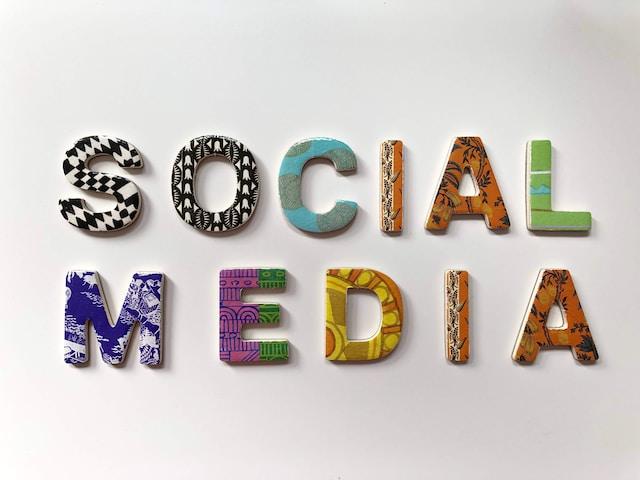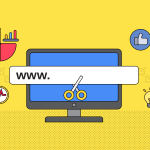
Social media has woven its way into the fabric of our lives, becoming an inseparable part of our routines. From staying connected with loved ones to discovering new trends and life hacks, it has revolutionized how we interact and engage with the world.
But amidst the sea of selfies and status updates, navigating the social media landscape with caution is paramount. Unfortunately, as its popularity continues to surge, so does the likelihood of stumbling upon common pitfalls.
In this article, we’ll shed light on five major mistakes that social media users often make, offering friendly advice on avoiding them and making the most out of our digital experiences. So, let’s dive in and ensure our social media journey is filled with positivity and a dash of savvy!
Using the same password for each account
Using the same password for all your social media accounts is like leaving the front door of your house wide open for hackers to stroll right in. Imagine if a crafty cybercriminal cracks the code to one of your accounts. Then they can effortlessly waltz their way into all the other accounts that share the same password.
Giving each of your accounts its unique password is vital to dodge this security nightmare. That might sound like a tedious task; however, a nifty tool can make this task a breeze – a password manager. Think of it as a trusty guardian angel that generates strong, complex passwords for each of your accounts and securely stores them on your behalf.
With a password manager by your side, you’ll only need to remember one master password to unlock the gates to all your accounts, keeping your digital kingdom safe and sound. So bid farewell to password repetition and welcome a world of hassle-free security!
Oversharing personal information
Another common mistake that social media users make is oversharing personal information. While sharing your location, birthday, or other personal details online may seem harmless, especially when you’re sharing it with people from your friends list, it can still put you at risk of identity theft and other crimes.
Consider this scenario: You decide to post a picture of your brand-new car, highlighting the shiny exterior and sharing your excitement. While it may seem okay to do so, this innocent post could inadvertently reveal your location, making it easier for potential thieves to track your whereabouts. Similarly, sharing your birthday and other personal details can provide valuable information for identity thieves to exploit.
Protect yourself better by being cautious about the information you share online. Limit the amount of personal data you disclose, and be mindful of who can view your posts and profiles. Setting your profiles to private can restrict access to your information, providing an added layer of security in case somebody you don’t know wants to use your information for evil purposes.
Falling for scams and phishing attacks
Beware of falling for scams and phishing attacks orchestrated by scammers and hackers on social media. Phishing scams, often disguised as emails, instant messages, or social media posts, aim to steal personal information or money and may also seem harmless at first glance.
Maintain vigilance while using social media and email to avoid becoming a victim. Act cautiously with unsolicited messages or requests, and always verify the identity of anyone seeking your personal information or funds. Additionally, keeping your antivirus and anti-malware software up to date will shield you against potential attacks.
Another way to protect yourself from phishing attacks is to use two-factor authentication whenever possible. This adds an extra layer of security to your accounts by requiring a second form of verification, such as a code sent to your phone, in addition to your password.
Finally, stay informed about the latest scams, and don’t forget to share the most recent information with your friends and family to help them stay safe online as well. You probably don’t want your grandma spending her last cent in order to help her grandchild financially with a fake car crash accident.
Not fact-checking before sharing information
Fact-checking before sharing information is another crucial step in being a responsible social media user. In an era of fake news and misinformation, verifying the information’s accuracy is a no-brainer. Sharing false information can damage your reputation and credibility and contribute to spreading misinformation.
To not become one of those know-it-all people who ‘heard it somewhere,’ take the time to fact-check any information before sharing it on social media. Rely on reputable sources and cross-check multiple sources to ensure the information’s authenticity. Then, it’s fine to share whatever you feel is right.
Engaging in online arguments and harassment
Social media can offer a place for constructive disagreement and conversation; however, it can also turn into a haven for hostility and harassment in certain cases. Unfortunately, that’s what happens almost to everybody at least once. Your emotional well-being and mental health may suffer as a result of fighting an ignorant or rude person in some Facebook posts’ comments.
However, it should be easier if you approached interactions on social media with respect and consideration for others’ opinions. Also, remember to avoid getting entangled in arguments or participating in any form of harassment. If you encounter instances of bullying or harassment on social media, report them to the platform administrators to keep cyber-bullies away.
Final Words
Social media is an excellent tool for connecting with people, spreading knowledge, and having fun, but it’s crucial to be aware of potential dangers. You may easily navigate the huge social media sea while maintaining your safety if you know how to avoid these typical pitfalls.
Therefore, keep your security, privacy, and general digital well-being in mind when you go out on your digital adventures. Then, you’ll be able to get the most out of your social media experience while remaining safe and sound. Happy connecting, learning, and scrolling!





